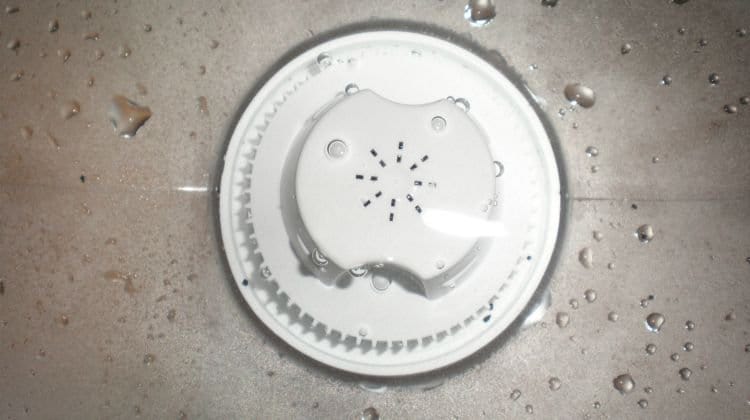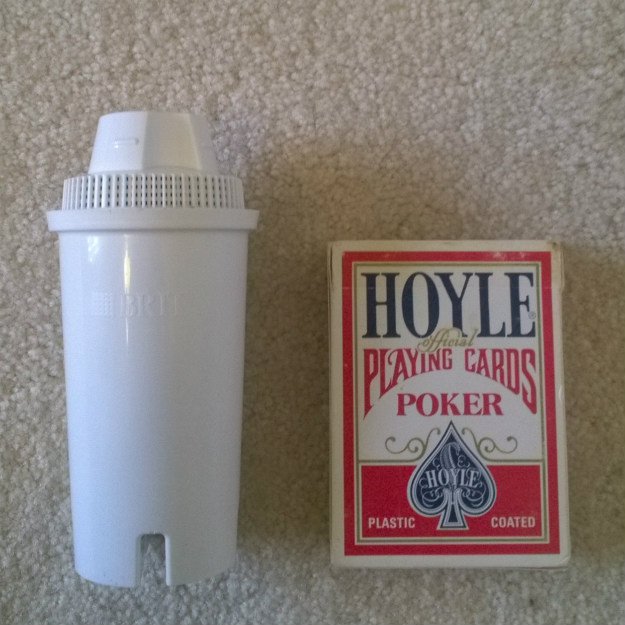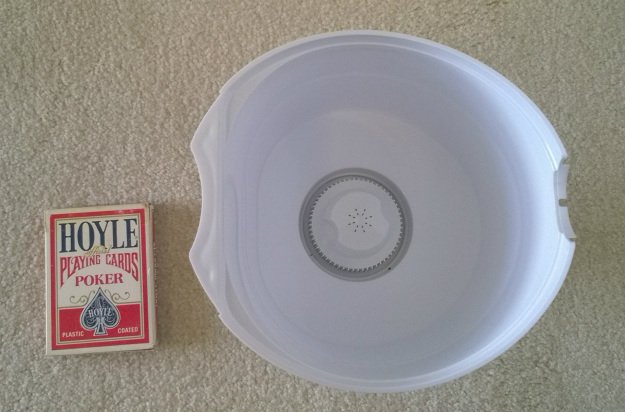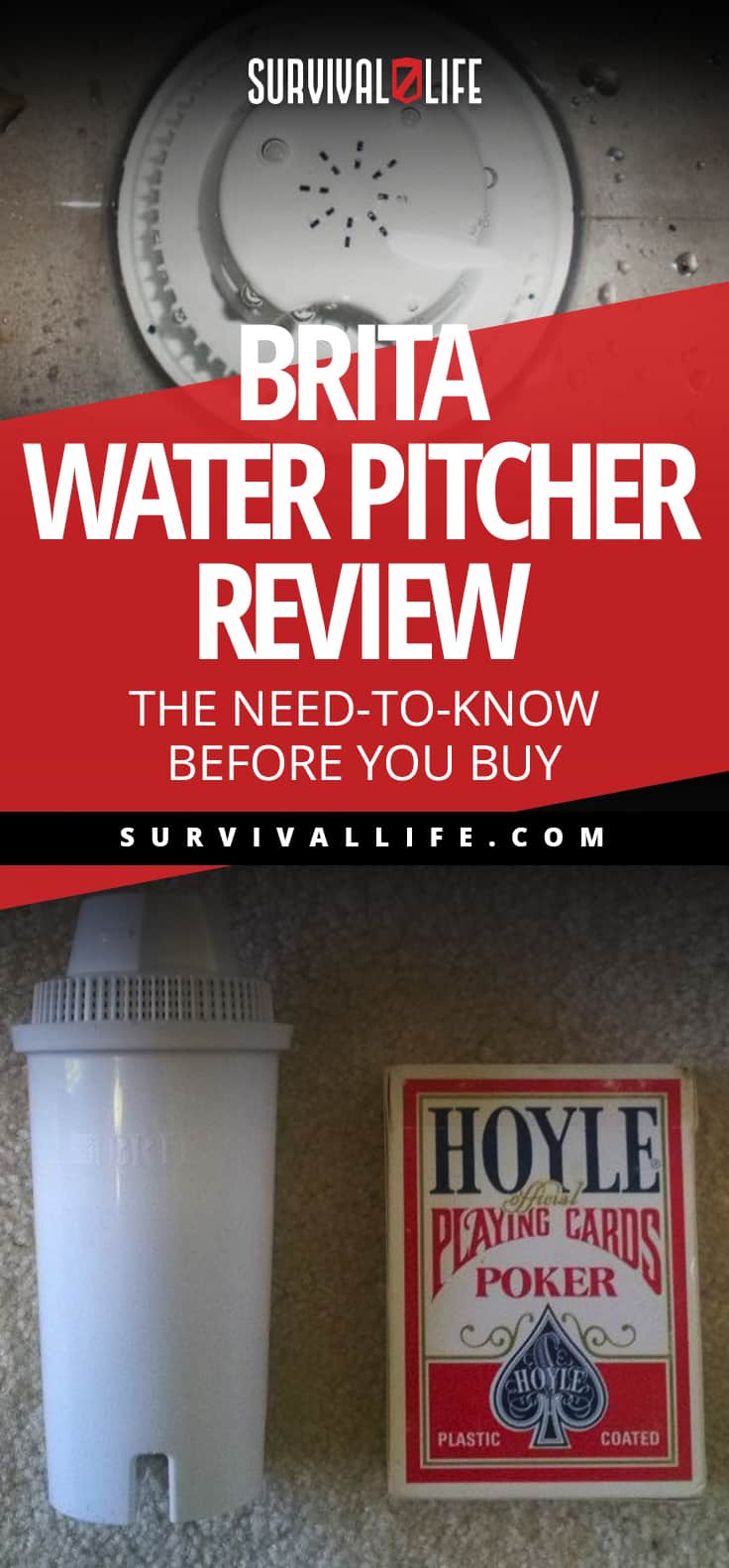Featured
Brita Water Pitcher Review | The Need-to-Know Before You Buy

Even when you’re not in an outdoor wilderness survival situation, providing clean water for yourself and your family is of vital importance. Whether you do or do not own a Brita water pitcher, this review will let you know if you need to switch up your water filtering methods or keep the ones you already have.
Brita Water Pitcher Review
I installed a reverse osmosis water system in my house since I purchased it seven years ago. It provides clean water that tastes great, plus it removes virtually every waterborne contaminant out there. The only catch is that the filters need to be changed every so often. The last time this happened, I didn’t have a spare set of filters on-hand, meaning I had to find an alternate source of drinking and cooking water.
Thankfully, I was prepared for this situation. A few years ago, I purchased a Brita® Pitcher Filter from one of my local big box retailers. I went to my garage and took it out of its packaging, then proceeded to read the instructions on how to use it. I also ordered two sets of reverse osmosis filters from another big box retailer to ensure I would have my current system up and running in a few days. In the interim, I would have a chance to evaluate one of my backup water filtration systems.
The Pitcher
The model I have is a large unit with two chambers. The top one is where the unfiltered water goes and has a capacity of just over 1 liter. The bottom one is where the filtered water is collected and has a capacity of around 2 liters. There are other Brita configurations, including dispensers that sit inside of a refrigerator. However, all of the pitchers and dispensers currently in production use the same filter.

The Filter
This is the heart of the Brita system. The filter contains coconut-based charcoal (activated carbon) along with an ion-exchange resin. Together, these materials reduces the amount of chlorine, copper, cadmium, and mercury from the water. It also removes unpleasant odors and tastes. According to the manufacturer, the filter is good for about 80 gallons (~300 liters) of water before it needs to be replaced.
Preparation
Together, the pitcher and filter use a combination of gravity and chemistry to filter water. This sounds simple, but first you need to prepare the filter. This means soaking the filter for 15 minutes in cold water, then rinse it under cold running water for a few seconds. After that is done, it can be inserted into the pitcher. Then, you need to fill it with water then discard the filtered water. During the first two pitchers of water, there may be small pieces of charcoal floating around in the water. This is normal and it happened to me so it’s nothing to be concerned about. After doing this twice, it was ready to be used.
Usage
Once the filter is ready, simply add water to the inner, top reservoir and let the filter do it’s thing. In my experience, it took around two minutes for a liter of water to completely pass through the filter. Once I filled it up, I simply put it in my refrigerator like any other pitcher and poured out water when I needed it. I had to regularly fill it up to keep it full but it was convenient for me to use.

Effectiveness
So far so good, but how effective is the Brita Water Pitcher? Well, it does reduce contaminants but doesn’t remove them entirely. The following table shows how effective it is in reducing certain substances:
| Filter Performance | |
| Substance | Average Reduction |
| Copper | 80% |
| Mercury | 95% |
| Cadmium | 93% |
| Chlorine | 97% |
| Zinc | 66% |
What is left unsaid is what it does not filter. This includes MTBE, PCBs, VOCs, Radon, Asbestos, Lead, Flouride along with waterborne microorganisms. Brita even says the following in their user manual:
“The Brita® Pitcher Filter is not intended to purify water. Do not use with water that is microbiologically unsafe or of unknown quality without adequate disinfection before or after the system…”
In other words, it is better than nothing but not a product that you would rely on in a real emergency.
Projected Costs
If memory serves, I spent about $35 for my pitcher and two filters. While this price looks attractive, the filters add up over time. A new filter costs about $8 MSRP and can filter up to 80 gallons of water, for a price of about $0.10 per gallon. The costs are less when you buy filters in multi packs. It’s not super expensive but also not a great deal for what you get.
Observations
Over the course of five days or so, I used this pitcher mostly for drinking water. It was ok but not as compelling as I had expected. I found myself using another one of my backup water filtration systems more. I’ll write about this particular unit in my next post so stay tuned…
Pros
Fairly quick filtration, convenient size. Was able to put pitcher in refrigerator to keep the water cold.
Cons
Not intended for emergency use when water may contain a wide range of contaminants. Filters don’t last very long and costs can add up over time.
Bottom Line
The Brita Pitcher Filter is a good backup to have on-hand if you are in an area that has a reliable supply of potable water. It makes tap water taste better but only reduces a small amount of contaminants. Not a bad product, but not really a good one either.
Overall Rating 4/10
Up Next: How To Purify Water | 5 Water Decontamination Techniques

For awesome survival gear you can’t make at home, check out the Survival Life Store!
Check out the world’s favorite compact, effective and efficient water filter the Aquastiq.
If you are looking to purchase a Brita or like products, check out these options!
- Give this Brita 10 Cup Everyday BPA Free Water Pitcher with 1 Filter a try!
- If you are looking to invest in the reverse osmosis system like our contributor Doug, check out this Aquaphor Water Filters RO-101 Reverse Osmosis Water Filtration System!
-

 Do It Yourself7 months ago
Do It Yourself7 months agoParacord Projects | 36 Cool Paracord Ideas For Your Paracord Survival Projects
-

 Do It Yourself9 months ago
Do It Yourself9 months agoHow To Make Paracord Survival Bracelets | DIY Survival Prepping
-

 Do It Yourself9 months ago
Do It Yourself9 months ago21 Home Remedies For Toothache Pain Relief
-

 Do It Yourself10 months ago
Do It Yourself10 months agoSurvival DIY: How To Melt Aluminum Cans For Casting
-

 Exports8 months ago
Exports8 months agoAre Switchblades Legal? Knife Laws By State


Pingback: Survival Life Article – Brita Water Pitcher - Smart Suburban Survival
Robert Kane
August 11, 2019 at 7:21 AM
The Brita filter is only good to make clean water taste a little better, it’s not a filter to make bad water good or drinkable. It takes at least a Pur filter for that. I was going to use a reverse Osmosis system for our water also, however it would cost us a fortune since we are on a pay water utility rather than a well system and a reverse osmosis uses 5 gallons to make 1, so it would be cost prohibitive for us.
The water utility we are on is not reliable but is considered potable and it’s better than most of the local tap water, but it’s still not what I consider the best, so we use a Pur filter water pitcher system and have had good results for years, and I like that Pur filters spores and many other chemicals, viruses and bacteria.
george
August 11, 2019 at 11:55 AM
I use a Clear2O water pitcher that uses a faucet adapter that you connect the pitcher hose to. It forces water under pressure thru a carbon block to filter the water. Been using for years.